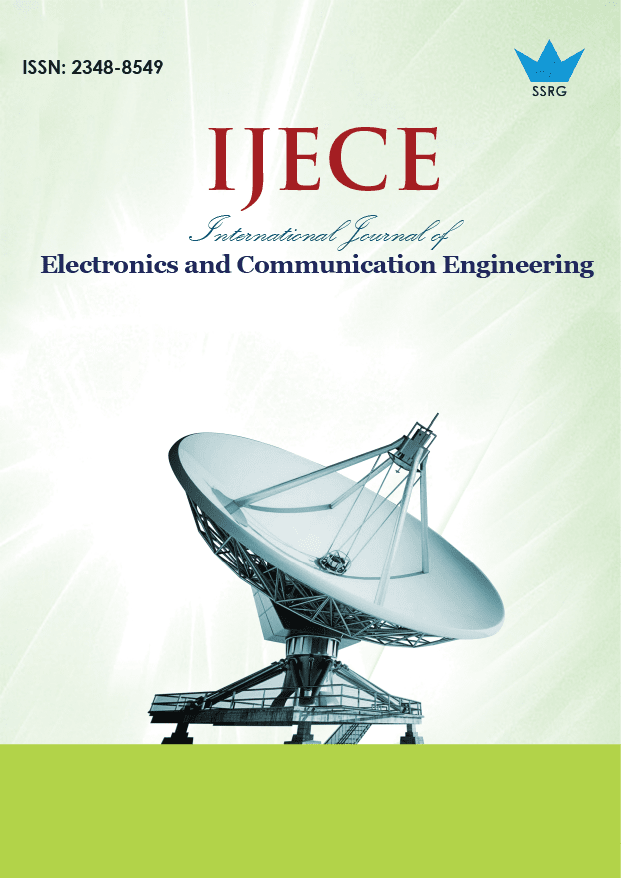A GNN-Based Framework for Predicting Student Entrepreneurial Success

| International Journal of Electronics and Communication Engineering |
| © 2025 by SSRG - IJECE Journal |
| Volume 12 Issue 9 |
| Year of Publication : 2025 |
| Authors : G. Raja Vikram, B. Prasad Yadav, S. Kranthi Reddy, A. Shreya, M. Muzammil |
How to Cite?
G. Raja Vikram, B. Prasad Yadav, S. Kranthi Reddy, A. Shreya, M. Muzammil, "A GNN-Based Framework for Predicting Student Entrepreneurial Success," SSRG International Journal of Electronics and Communication Engineering, vol. 12, no. 9, pp. 118-126, 2025. Crossref, https://doi.org/10.14445/23488549/IJECE-V12I9P110
Abstract:
In the modern world of innovation, startups play pivotal roles as agents of economic growth, employment, and technological disruption. With learning institutions promoting entrepreneurship, there is an increasing imperative to detect student projects with a long-term potential for success. This research puts forth a predictive framework that applies a high-dimensional set of educational performance, soft skills, behavioral characteristics, and institutional support factors to predict startup success among students. The research compares machine learning models, such as Random Forest, XGBoost, LightGBM, Artificial Neural Networks (ANN), and Graph Neural Networks (GNN), to determine which best represents the complex nature of entrepreneurial success. Interestingly, the GNN model performed the best, with the highest accuracy by successfully learning feature correlations and inter-dependencies. The results have real-world application for universities, incubators, and funding agencies as they facilitate early identification of high-potential student entrepreneurs. This allows for intentional mentoring, focused resource allocation, and the creation of stronger campus-based startup ecosystems.
Keywords:
Deep Learning, Graph Neural Networks (GNN), Machine Learning, Startup Success Prediction, Student Entrepreneurship.
References:
[1] Marat Ressin, “Start-Ups as Drivers of Economic Growth,” Research in Economics, vol. 76, no. 4, pp. 345-354, 2022.
[CrossRef] [Google Scholar] [Publisher Link]
[2] Pat H. Dickson, George T. Solomon, and K. Mark Weaver, “Entrepreneurial Selection and Success: Does Education Matter?,” Journal of Small Business and Enterprise Development, vol. 15, no. 2, pp. 239-258, 2008.
[CrossRef] [Google Scholar] [Publisher Link]
[3] R. Akshara et al., “An Effective Model to Prognosticate the Stock Market Tendency using Social Media,” 2021 Third International Conference on Inventive Research in Computing Applications (ICIRCA), Coimbatore, India, pp. 1220-1223, 2021. [CrossRef] [Google Scholar] [Publisher Link]
[4] Revelle Akshara et al., “Detecting Hard Landing of Flights: E-Pilots,” Advances in Machine Learning and Big Data Analytics I, pp. 565-575, 2025.
[CrossRef] [Google Scholar] [Publisher Link]
[5] Anastasios Papadopoulos, and Maria González, “Predictive AI in Business Intelligence Enhancing Market Insights and Strategic Decision-Making,” American Journal of Technology Advancement, vol. 1, no. 8, pp. 72-90, 2024.
[Google Scholar] [Publisher Link]
[6] Revelle Akshara, and Ajay Jain, “Data to Decisions: Optimizing E-commerce Sales Potential with Analytics,” International Research Journal on Advanced Engineering Hub, vol. 2, no. 4, pp. 1087-1093, 2024.
[CrossRef] [Google Scholar] [Publisher Link]
[7] J. Anitha Gracy et al., “Software Startups Success Prediction: Machine Learning Methods of Comparative Analysis,” 2024 First International Conference for Women in Computing (InCoWoCo), Pune, India, pp. 1-8, 2024.
[CrossRef] [Google Scholar] [Publisher Link]
[8] Ida Bagus Putu Ariartha, and Dadan Rahadian, “Predictive Analytic for Investment Target Selection in Startup Companies Using Logistic Regression and K-Means Algorithms,” 2025 International Conference on Advancement in Data Science, E-Learning and Information System (ICADEIS), Bandung, Indonesia, pp. 1-7, 2025.
[CrossRef] [Google Scholar] [Publisher Link]
[9] Manikanth Sarisa et al., “Deep Learning to Predict the Success of Startup Companies based on Smote and XB-RFE Model,” 2024 4th International Conference on Mobile Networks and Wireless Communications (ICMNWC), Tumkuru, India, pp. 1-5, 2024.
[CrossRef] [Google Scholar] [Publisher Link]
[10] Wei Guan et al., “Finding Successful Startups by Using Information Flows among Investors in Higher Order Network of Investments,” IEEE Transactions on Computational Social Systems, vol. 11, no. 5, pp. 5803-5814, 2024.
[CrossRef] [Google Scholar] [Publisher Link]
[11] Mohammad Riyaz Belgaum et al., “Comparative Analysis of Start-up Success Rate Prediction Using Machine Learning Techniques,” 2024 Third International Conference on Smart Technologies and Systems for Next Generation Computing (ICSTSN), Villupuram, India, pp. 1-6, 2024.
[CrossRef] [Google Scholar] [Publisher Link]
[12] Ajai Kumar Misra, Dharm Singh Jat, and Durgesh Kumar Mishra, “Startup Success and Failure Prediction Algorithm Using k-Means Clustering and Artificial Neural Network,” 2023 International Conference on Emerging Trends in Networks and Computer Communications (ETNCC), Windhoek, Namibia, pp. 190-195, 2023.
[CrossRef] [Google Scholar] [Publisher Link]
[13] Kush Shah et al., “Predicting the Success of Startups Based on Investment and Funding Details,” 2023 IEEE 11th Region 10 Humanitarian Technology Conference (R10-HTC), Rajkot, India, pp. 603-607, 2023.
[CrossRef] [Google Scholar] [Publisher Link]
[14] Malhar Bangdiwala et al., “Predicting Success Rate of Startups Using Machine Learning Algorithms,” 2022 2nd Asian Conference on Innovation in Technology (ASIANCON), Ravet, India, pp. 1-6, 2022.
[CrossRef] [Google Scholar] [Publisher Link]
[15] Yasser Hamza Al Rahma, and Muhammed Abrar-Ul-Haq, “Integrating Machine Learning to Predict Entrepreneurial Success in Bahrain,” 2024 International Conference on Sustainable Islamic Business and Finance (SIBF), Bahrain, pp. 1-6, 2024.
[CrossRef] [Google Scholar] [Publisher Link]
[16] Sourav Garodia et al., “Predicting Entrepreneurial Tendencies in University Students of Bangladesh: A Machine Learning Approach,” 2025 International Conference on Electrical, Computer and Communication Engineering (ECCE), Chittagong, Bangladesh, pp. 1-6, 2025.
[CrossRef] [Google Scholar] [Publisher Link]
[17] Imam Tahyudin et al., “Unlocking Potential: Predicting Student Entrepreneurship Performance through Small Dataset Modelling,” 2023 IEEE 7th International Conference on Information Technology, Information Systems and Electrical Engineering (ICITISEE), Purwokerto, Indonesia, pp. 325-330, 2023.
[CrossRef] [Google Scholar] [Publisher Link]
[18] Mohd Tabrej Alam, and Rudra Prakash Pradhan, “Integrating AI and IoT for Smarter Decision Support in Entrepreneurial Ecosystems,” 2025 8th International Conference on Electronics, Materials Engineering & Nano-Technology (IEMENTech), Kolkata, India, pp. 1-6, 2025.
[CrossRef] [Google Scholar] [Publisher Link]

 10.14445/23488549/IJECE-V12I9P110
10.14445/23488549/IJECE-V12I9P110